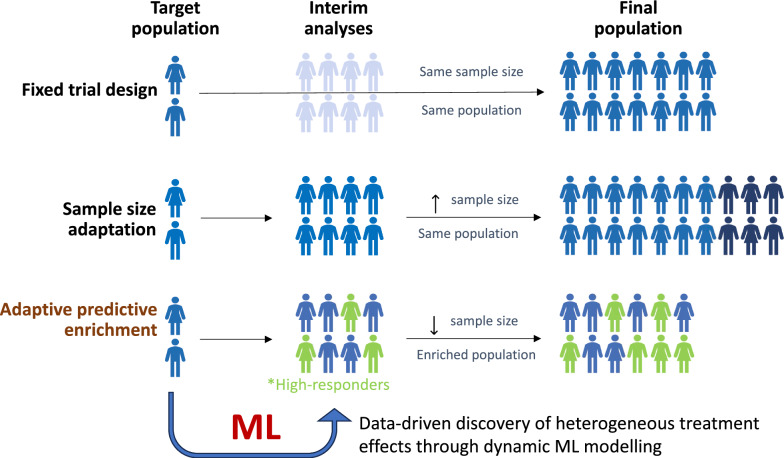Fig. 4.
Machine learning for predictive enrichment of randomized control trials. Machine learning can be used to guide adaptive clinical trial design though data-driven inference and predictive enrichment. Traditional fixed trial designs do not allow modifications in the patient population, whereas sample size adaptations only allow interim revisions in the power calculations and target sample sizes based on the accumulating rate of primary outcome and safety events. In trials whereas there happens to be clinically meaningful heterogeneity in the treatment effect, a priori inclusion of machine learning, data-driven inference may provide early signals of heterogeneous benefit or harm and a reference for adaptive predictive enrichment. This approach can optimize the trial’s efficacy, shorten its duration, minimize its costs, maximize inference, and ultimately ensure safety for the study participants. ML machine learning

